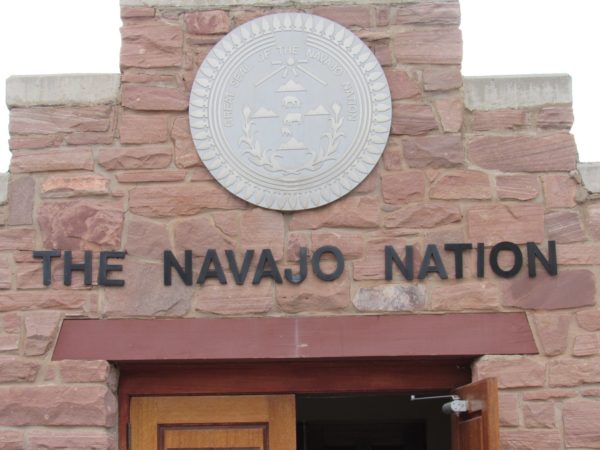
- Details
- By Native News Online Staff
WINDOW ROCK, Ariz. — On Saturday, the Navajo Department of Health, in coordination with the Navajo Epidemiology Center and the Navajo Area Indian Health Service, reported 59 new COVID-19 positive cases for the Navajo Nation and three more deaths. The total number of deaths is now 581 as of Saturday. Reports indicate that 7,542 individuals have recovered from COVID-19, and 125,477 COVID-19 tests have been administered. The total number of positive COVID-19 cases is now 11,753.
Navajo Nation COVID-19 positive cases by Service Unit:
- Chinle Service Unit: 2,620
- Crownpoint Service Unit: 1,195
- Ft. Defiance Service Unit: 1,225
- Gallup Service Unit: 1,791
- Kayenta Service Unit: 1,401
- Shiprock Service Unit: 1,799
- Tuba City Service Unit: 1,122
- Winslow Service Unit: 591
* Nine residences with COVID-19 positive cases are not specific enough to place them accurately in a Service Unit.
The Navajo Nation’s 56-hour weekend lockdown is in effect until Monday, Nov. 2 at 5:00 a.m. (MST). On Saturday, the state of New Mexico reported 592 new cases of COVID-19, the state of Arizona reported 1,901 new cases, and Utah reported 1,724.
“Public health officials indicate that the number of new COVID-19 cases reported each day are usually individuals who contract the virus a week or two prior. Due to the incubation period for the virus, it can take 14 days to start showing symptoms, and some people never show symptoms but still carry the virus and can give it to others. Please stay home this weekend, wear a mask around others, wash your hands often, practice social distancing, and avoid large crowds. Please continue to pray for yourselves, your loved ones, and all of our people,” said Navajo Nation President Jonathan Nez.
Public health officials strongly advise against in-person gatherings and activities, such as door-to-door trick-or-treating, in-person costume contests, large dinner parties with non-household members, haunted houses, and fall carnivals. Currently public health emergency orders prohibit in-person gatherings of five or more.
For more information, including helpful prevention tips, and resources to help stop the spread of COVID-19, visit the Navajo Department of Health's COVID-19 website: https://www.google.com/url?q=http://www.ndoh.navajo-nsn.gov/COVID-19&source=gmail&ust=1604289603369000&usg=AFQjCNG5aBdQl0qLgCzNA4dp7wjemv2yPg">http://www.ndoh.navajo-nsn.gov/COVID-19. For COVID-19 related questions and information, call (928) 871-7014.
More Stories Like This
Native News Weekly (August 25, 2024): D.C. BriefsNative News Weekly (February 22, 2026): D.C. Briefs
NCAI Releases Sttatement on the Passing of Rev. Jesse Jackson
Colusa Indian Energy Participates in Port of Quincy Town Hall on Columbia Basin Power Project
Q&A: Jingle Dress Dancer Answered Call to Ceremony in Face of ICE Violence
Help us defend tribal sovereignty.
At Native News Online, our mission is rooted in telling the stories that strengthen sovereignty and uplift Indigenous voices — not just at year’s end, but every single day.
Because of your generosity last year, we were able to keep our reporters on the ground in tribal communities, at national gatherings and in the halls of Congress — covering the issues that matter most to Indian Country: sovereignty, culture, education, health and economic opportunity.
That support sustained us through a tough year in 2025. Now, as we look to the year ahead, we need your help right now to ensure warrior journalism remains strong — reporting that defends tribal sovereignty, amplifies Native truth, and holds power accountable.
 The stakes couldn't be higher. Your support keeps Native voices heard, Native stories told and Native sovereignty defended.
The stakes couldn't be higher. Your support keeps Native voices heard, Native stories told and Native sovereignty defended.
Stand with Warrior Journalism today.
Levi Rickert (Potawatomi), Editor & Publisher

